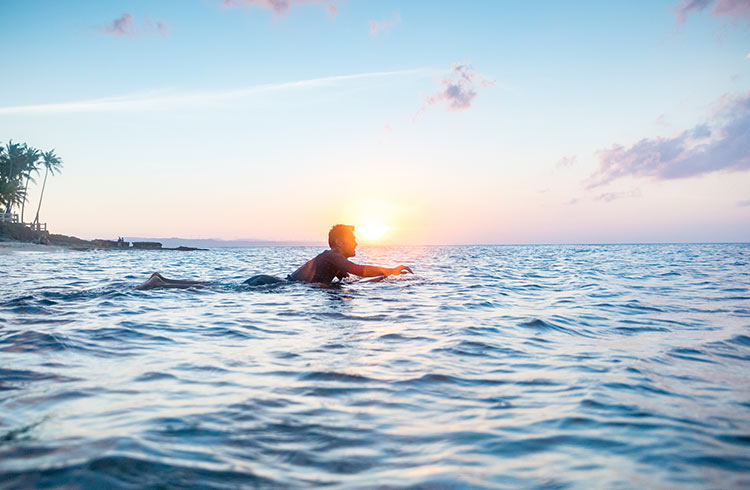Why Travelers Need to Pack a Travel First Aid Kit
No matter where you are traveling, you should always pack a medical kit. Beat the risk of low stock or limited availability of these items with these tips.
 Photo © Getty Images/dotdotred
Photo © Getty Images/dotdotred
You should always travel with a personal medical kit. Why? As travelers, we need to limit our chances of getting infections or falling ill – and having medicine or first-aid items available is the best way to be prepared, whether you're in the middle of the Atacama Desert or walking the streets of a foreign city.
In most remote destinations, much of what we take for granted at home as basic supplies is simply impossible to find. Don't leave yourself in trouble, here's why (and what) you should pack in your first-aid kit.
- What to put in your travel medical kit
- Crossing borders with a first-aid kit
- Putting a personal travel medical kit together
What to put in your travel medical kit
This list can be expanded depending on where you are going and what your doctor advises, but the basics should include:
- Antiseptic cream/lotion
- Sunscreen
- Headache tablets
- Band-aids/gauze
- Small scissors/tweezers
- Any antibiotics or prescription drugs – with a letter and a copy of the prescription from your doctor
- Crepe bandage and safety pins or butterfly closures
- Contraceptives – take a copy of the prescription from your doctor
- Latex gloves
- Hand sanitizer, because basic hygiene also goes a long way to ensuring you don't get sick in the first place.
Traveling off the beaten track
If you are going off the beaten track or to developing countries, also pack:
- Anti-diarrhoea tablets and laxatives (for changes in diet and water quality)
- Fluid and electrolyte replacement medications (eg. Gastrolyte, a water-soluble powder)
- Water purification tablets
- Malaria tablets - this varies according to the destination and the mozzies' resistance levels.
- Antihistamines – very useful for savage insect bites
"Since arriving…I have accumulated bites from the following creatures - bed bugs, mosquitos, leeches and green fly things (no name in English) that left my legs bleeding as if I had walked naked through a thorn bush." – Jonnygo tackles Thai wildlife
Adventure travel
Well, you're getting into a whole new league here. Exactly what adventure you're undertaking should dictate what else to pack. It's fair to say, you might need:
- A sling (do you know how many people sprain/break limbs whilst in the snow?)
- Additional wound treatments – the self-adhesive kind are especially handy to have. Mountain-bikers, take note!
- If you've missed the point above about antibiotics because it means a trip to a doctor to get a prescription.. think again.
"I can feel my peripheral vision shrinking by the second and grab my head with both hands in a last attempt to salvage or stabilize a single awareness beyond my shaking body." – Solbeam gets giardia whilst trekking Peru
Travel with kids
And if you're traveling with children, our two top First Aid tips are:
- Packets of antiseptic hand wipes for cleaning sticky fingers before and after meals
- Enough liquid paracetamol or similar to get you through at least a week of a bad fever. Whilst it seems commonplace to buy this over the counter in many Western countries, it simply does not exist in developing nations.
"Three days later 5 year-old Riu contracts a fever, has a heart rate of 142, has shivers and a headache." – Simon Monk
Crossing borders with a first-aid kit
One thing to be aware of is the different attitude in foreign countries to various over-the-counter drugs that you might take for granted back home.
For example, did you know that Note that codeine is considered a narcotic in Greece and should be covered by a doctor's prescription. You do not want to attract the attention of customs staff by accidently bringing this across the Greek border without a script!
So, while we offer tips for your travel health and safety, please be aware that you need to make decisions based on your own circumstances and the local laws of the countries you will visit. Check with your Foreign Affairs Dept and WHO website for the most recent information.
Putting a Personal Travel Medical Kit Together
You might like to shop around, visit your doctor and slowly pull together a medical kit that suits the kind of travel you're doing.
However, the fast and convenient option is to buy a ready-made one. Experts far wiser than you or I have spent a lot of time putting together exactly the right combo of things in nifty little pouches... check out specialist kits for wilderness lovers, canoeists, mountaineers, backpackers and families from a company like Adventure Medical Kits.
Related articles
Simple and flexible travel insurance
You can buy at home or while traveling, and claim online from anywhere in the world. With 150+ adventure activities covered and 24/7 emergency assistance.
Get a quote
No Comments